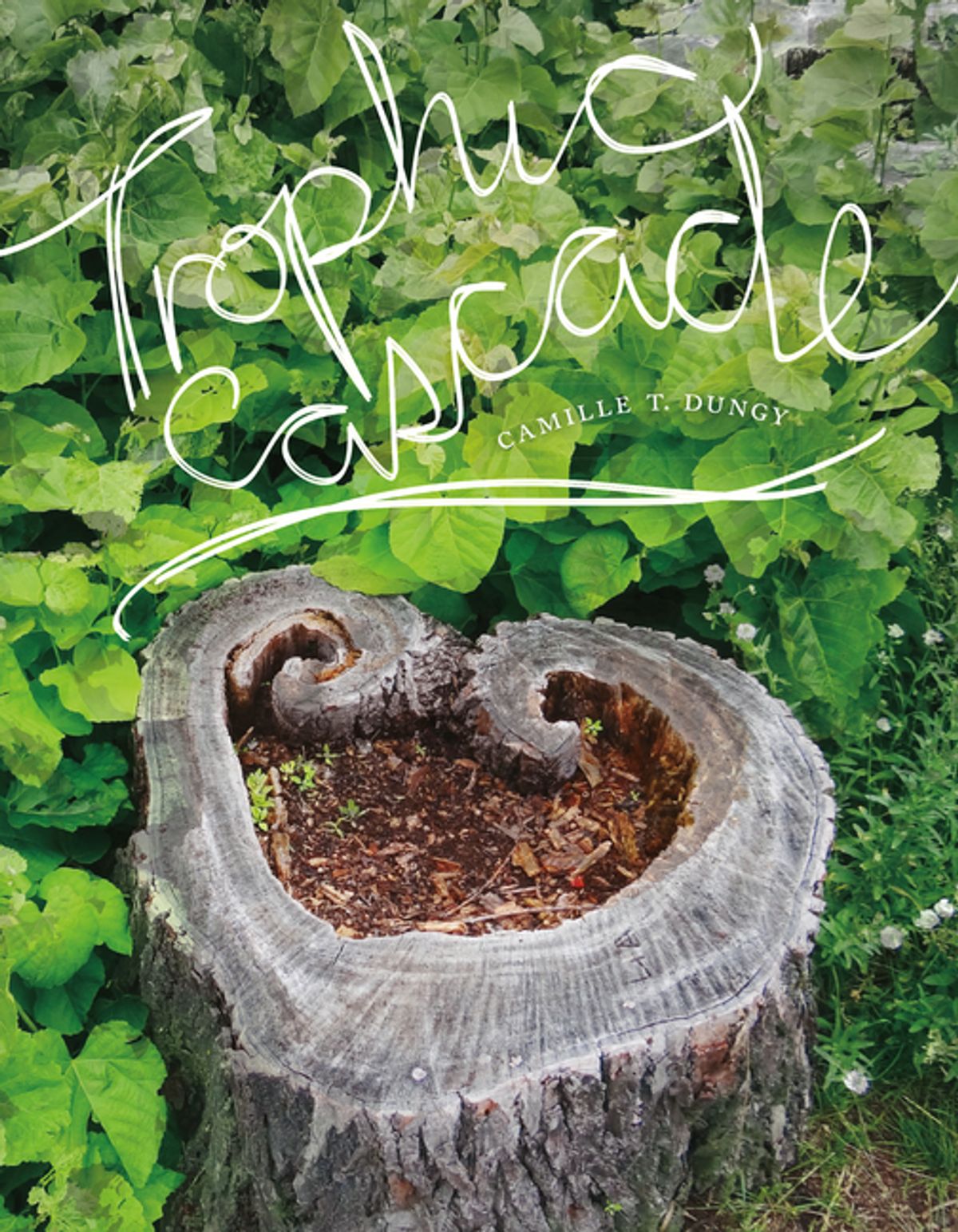Camille T. Dungy is both an outstanding writer of the “natural world” and one of the most deft makers of metaphor working today. Her metaphors refuse to let the reader rest in their connections, but instead create a kind of friction in the mapping of vehicle onto tenor, an incongruity that invites the reader to follow the various threads of implication in an unlikely pairing. Perhaps the connection between those two strengths—unsettling, dynamic metaphors and precise observation of the natural world—is no accident.
In Metaphors We Live By, a seminal book of metaphor theory by George Lakoff and Mark Johnson, the authors argue that most common metaphors are born by connecting our shared experience of physical reality to abstract ideas, to better convey those ideas, to communicate with one another, for example, “she’s a rock” or “I’m feeling down.” Conversely, Lakoff and Johnson state, “new metaphors are capable of creating new understandings and, therefore, new realities.”
Sabrina Orah Mark, another poet and essayist who, like Dungy, writes searchingly and searingly about motherhood, and another maker of wholly original metaphor, asks, in her 2020 essay, “Metaphor. Hotline. Support. Network,”
But what happens to metaphor when the framework as we once knew it thins or even dissolves? When the world seems to be breaking out of the world that once kept it?
If, as Mark suggests, foundational changes in our lives can make our existing metaphors obsolete, can the act of creation of new conceptual pairings be a form of “re-pair,” imaginative work toward a coherent reality?
A few years ago, I happened upon several of Camille Dungy’s “Frequently Asked Questions” poems in various journals, and I was drawn in by the way they play with poetic responses to awkward, invasive, and sometimes offensive questions the speaker has been asked, usually by strangers. The replies sometimes address the subject of the question directly, but often they address something underlying the dynamic between questioner and speaker, even the underlying energy of the exchange.
In her “Frequently Asked Questions: #10” (also included in Trophic Cascade), the interlocutor asks: “Do you see current events differently because you were raised by a black father and are married to a black man?” Dungy’s response is a poem about watching, with her father, husband, and daughter, the bird feeder outside of their window, considering the grackles that have somehow come and “scared the other birds away.” The poem, by turns exploratory and intimate, doesn’t form an allegorical answer or neat rebuke to the question. The ghost of a metaphor passes through the discussion of the grackles—the grackles which are also just grackles—a vehicle gesturing to a complex array of tenors.
At the beginning of 2021, as the pandemic rolled through the winter, I thought a lot about the word “repair,” and I searched for ways to soften the edges of the quarantine for my children, to patch up frayed nerves and infuse our days with more happiness or, at least, calm. I signed up for a class called “The Poetry of Repair” with Tess Taylor, and there, in the reading packet, was “Trophic Cascade,” the title poem from Dungy’s collection.
The opening of the poem describes, in vivid detail, the changes brought about by the reintroduction of wolves into Yosemite National Park’s ecosystem. In a recent interview, Dungy defines “trophic cascade” as:
a term from ecology. There is a continuance and connection from the trophy creature, often a large predator at the top of the food chain, for a simplified way of thinking about that term, and all the creatures who come in a cascading manner off of that creature.
The gray wolves’ culling of the deer causes tree growth, which brings birds, who scatter new seeds, and so on, until even the river is reshaped and the area is teeming with life and, certainly, more death too:
Weasel and water shrew
returned, also vole, and so came soon hawk
and falcon, bald eagle, kestrel, and with them
hawk shadow, falcon shadow.
Then, in a profound and surprising turn, speaker confronts reader— “Don’t / you tell me this is not the same as my story”— and, in that disruption, redirects all the branching natural description into a metaphorical connection. Upending the reader’s expectations of the poem, Dungy compares this “trophic cascade” to one that occurred in her own life when she had a child, another kind of resource-hungry being, when she “reintroduced” herself to herself “as a mother.”
Once again, we find a metaphor where vehicle and tenor don’t map neatly, where there’s an energetic rift between the two. Once again, I find Dungy’s precise language and inspired connections evoke a startling awareness of what is fragile, and what is prized or precious in our lives, of how one change can change everything. The reintroduction of gray wolves was risky, but in the end, it was a form of re-pair, one with a multiplicity of effects. Likewise, the drastic shift into motherhood results in the remaking of a world, a “cascade” of changes, large and small, the many gains and losses impossible to anticipate.




